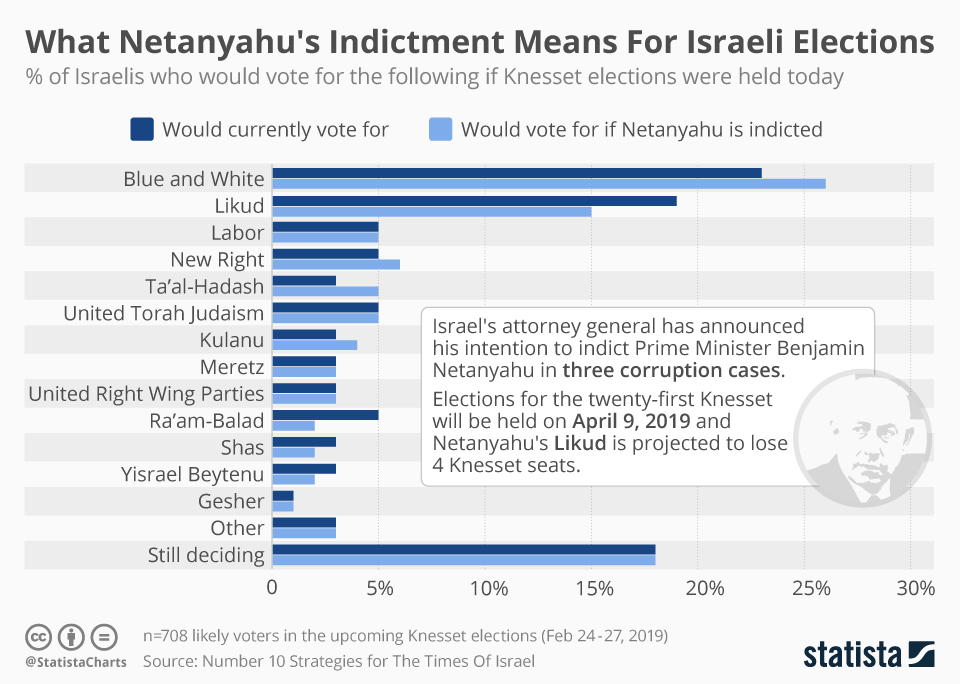Israel: Leaning Right?
February 11, 2023 | Expert Insights

The vicious cycle of violence continues to rock Israel and its occupied territories. Palestinian gunmen shot seven Israelis outside a synagogue in retaliation to Israeli airstrikes on the West Bank, which left at least nine Palestinians dead.
This coincided with an Israeli drone attack on an Iranian military factory and the visit of the U.S. Secretary of State Antony to Egypt, Israel and the Palestinian territories. Clearly, Washington was not happy with this uncalled-for escalation, which some blame upon the right-wing elements of Israel’s ruling coalition. This could seriously hinder American efforts for Middle East stability in the background of a raging war in Eastern Europe by bringing Iran back to the nuclear deal and brokering a peace deal between Israel and Saudi Arabia. To calm matters, the Secretary of State reiterated U.S. commitments to a two-state solution, an outcome anathema to the Israeli far right.
Background
The longest-serving prime minister of Israel, Benjamin Netanyahu, won his electoral triumph on the back of a right-wing alliance called "Religious Zionism.” While this has, for the first time in many years, given the country a relatively stable government, it runs the risk of imposing on the country, and the region, a hard-line solution which may be the course of even more conflict.
More worryingly, it has pushed the left-of-centre political group into a corner, thus eliminating its sobering effect on government decisions.

Analysis
Israel lacks a written constitution (like India) or an “unwritten constitution” codified by traditions and long-standing norms (like the UK). (Israelis like to justify this by stating that so much has the state been engrossed in its very survival since its inception that it has never got around to giving itself a constitution!)
In this apparent legal vacuum, the Supreme Court has historically played a crucial role in defending the rights of the marginalised and reining in the executive. It has also proactively levelled corruption charges against many prominent politicians, especially from the right wing. The controversial plans of the new dispensation for ‘judicial overhaul’ is a source of worry for civil rights activists in Israel.
The new government's domestic policies have the potential to undo the main foreign policy gain of Netanyahu's previous tenure — the Abraham Accords. The Accords galvanised a normalisation of relations with the Gulf countries leading to a significant reduction in the geopolitical isolation of Israel while laying the grounds for expansive economic, political, and security cooperation in the middle east. Netanyahu's ceding too much ground to the far-right forces will hinder Israel’s efforts to win over the powerful states in the Gulf and may extinguish the spark of interest that Crown Prince Mohammed bin Salman Al Saud, the de-facto ruler of Saudi Arabia has indicated recently. Saudi Arabia has indicated its willingness to diplomatically accommodate its long-standing “Zionist Enemy” against the common threat of Shia Iran and Sunni Islamist hardliners. A hard-line approach could potentially derail all the progress that the Whitehouse achieved in the diplomatic rehabilitation of its ally over two administrations.
The positive side is that the Israeli civil society has spearheaded strong domestic protests against the more radical reforms being propounded by the government. These groups advise calming the internal political and law and order situation before embarking on major policy decisions that are so extremist that they threaten to turn the entire Middle East geopolitics on its head. Even the international consensus favours geopolitical consensus within and outside Israel.
Turkey, another major regional player, may also be compelled to review its relations with Israel. Last year full diplomatic relations were re-established between Ankara and Tel Aviv, severed in 2018 when Turkey chose diplomatic isolation of Israel for shooting down sixty Palestinians on the Gaza border during protests. Turkey's de-escalation with Israel and neighbouring powers comes against the backdrop of its economic instability and core national security issues, such as its relations with arch-enemies Greece and its protégé Cyprus and Kurdish nationalism.
This is significant because, since the early 2000s, Turkey's ruling Justice and Development Party has been a patron of Hamas, the militant group that rules the Gaza strip and considered a terror outfit by Israel. Turkey's goodwill is also crucial for Israel's national security for intelligence monitoring of Iran. Additionally, improved ties with Turkey might pressure Hamas, which has created a substantial presence in Istanbul and has conducted operations from Turkey since the last decade.
That the right-wing Israeli government can demonstrate moderation and strategic acumen is underscored by its stance in the Russia-Ukraine war. Prime Minister Netanyahu has categorically refused to take an unequivocal stand and condemn Russia for its alleged war crimes. It has also declined to deliver weapons to Ukraine despite Western pressures. Tel Aviv values Russian influence on Teheran, and Prime Minister Netanyahu has always enjoyed a good rapport with President Putin.
Last but not least, the Palestinian people matter. Invariably, they are being slowly but steadily marginalised on the alter of regional and global geopolitics. This should not be viewed by a right-wing dominated government in Tel Aviv as an opportune moment to crush, once and for all, Palestinian aspiration for an independent homeland.
As a close strategic partner of Israel, India would be in a quandary as to how to balance out its strategic needs with its historical role as the champion of suppressed populations.
Assessment
- The fact that Secretary Blinken had to rush in for firefighting and to calm matters is proof enough of how extremist policies can cause irreparable damage to all the peace efforts of the U.S. It can be hoped that the U.S. would be able to exercise the requisite influence upon its ally to prevent any drastic policy action by Tel Aviv. This was clear from the U.S. decision to restore aid to the Palestine National Authority and United Nations Relief and Works Agency for Palestine Refugees in the Near East (UNRWA).
- However, there are limits to American influence; the Biden administration is not likely to push the Zionist Israeli government too far on the Palestine issue anytime soon without being confident of significant strategic gains. Moreover, in the backdrop of the Russian-Ukraine war and China- Russia 'no-limits' entente, the U.S. cannot risk offending Israel in the process.
- Israel is the only truly democratic nation in the Middle East, a trait it has repeatedly demonstrated in its seven decades as an independent and proud nation. The roots of democracies are too deeply ingrained for a single administration to change the nation's course. There is a strong civil society and other institutions that will inhibit the right wing from high-jacking the national agenda, however strong the incentive is. The world must wait and watch how the new government evolves in the next few months.








Comments